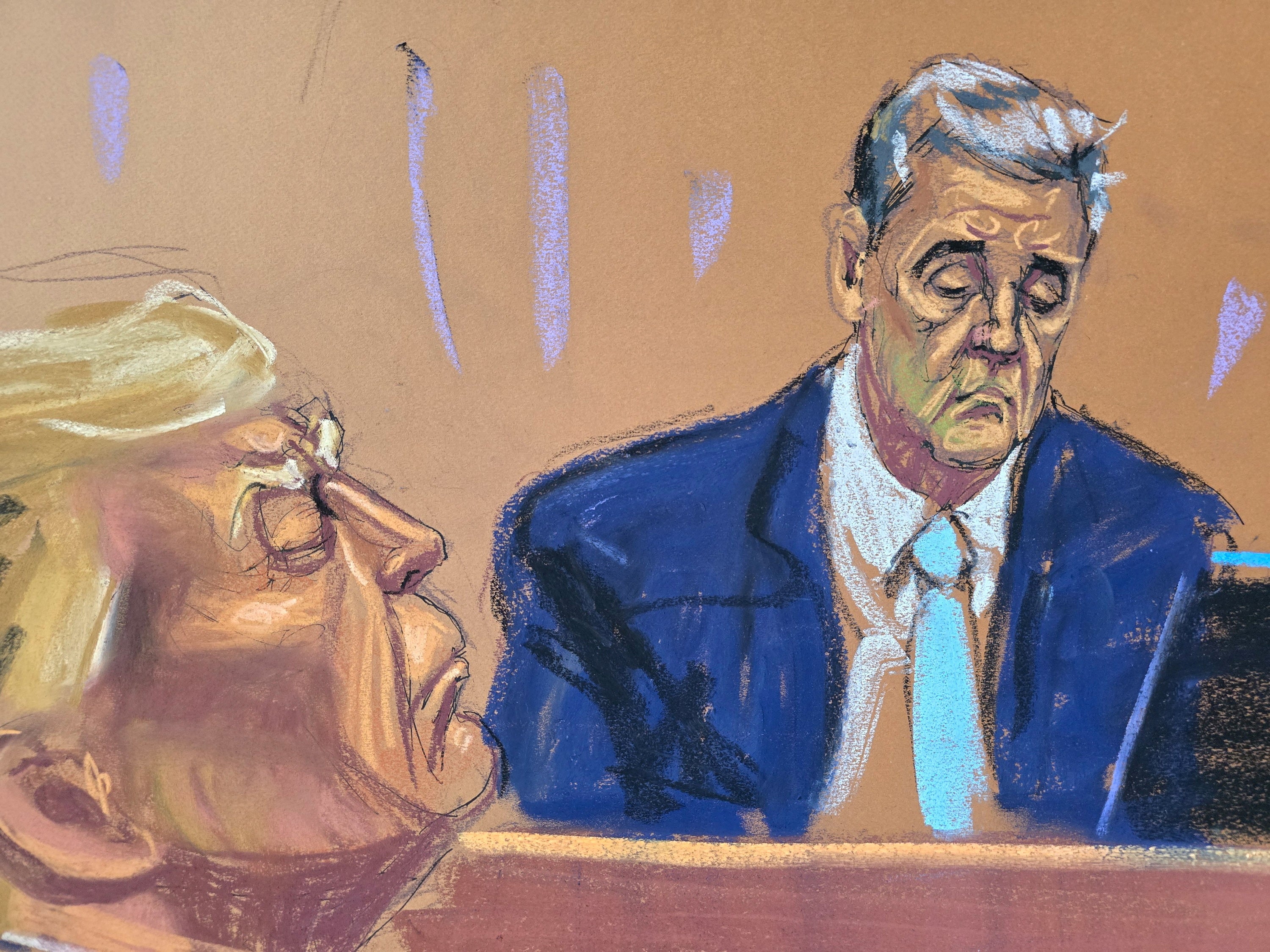Donald ‘Delay’ Trump: Michael Cohen sheds light on strategy to push back payments, trials and consequences
Cohen testified to his former boss’s delay tactic to get out of making hush money payments – and gave insight into the strategy his team still uses today
Your support helps us to tell the story
From reproductive rights to climate change to Big Tech, The Independent is on the ground when the story is developing. Whether it's investigating the financials of Elon Musk's pro-Trump PAC or producing our latest documentary, 'The A Word', which shines a light on the American women fighting for reproductive rights, we know how important it is to parse out the facts from the messaging.
At such a critical moment in US history, we need reporters on the ground. Your donation allows us to keep sending journalists to speak to both sides of the story.
The Independent is trusted by Americans across the entire political spectrum. And unlike many other quality news outlets, we choose not to lock Americans out of our reporting and analysis with paywalls. We believe quality journalism should be available to everyone, paid for by those who can afford it.
Your support makes all the difference.On his first day of testimony in Donald Trump’s hush money trial, his former “fixer” Michael Cohen repeated one phrase when talking about the payments made to adult film star Stormy Daniels: “Delay it.”
Cohen, Mr Trump’s former attorney, testified resoundingly about a strategy to delay commitments made by Mr Trump — a crucial insight into how the former Trump campaign worked in 2016, and potentially into how his current campaign and legal strategies operate today.
In his testimony, Cohen detailed the agreement to pay Ms Daniels $130,000 before Election Day in 2016 in exchange for her silence about her story about having sex with Mr Trump in 2006. Mr Trump’s reimbursement payments are at the heart of the ongoing criminal trial in which Mr Trump faces 34 counts of falsifying business records stemming from Cohen’s invoices and the checks he signed to pay him back.
Cohen testified on Tuesday that he was instructed to drag out executing those payments. “My intent was to continue to delay it, as per Mr Trump’s demand,” he said.
He later testified that Yom Kippur was used as “a way of once again trying to delay it, that is until after the election. Because after the election, it wouldn’t matter.”
This “delay” strategy also extended beyond the payments to Ms Daniels, according to his testimony.
On Monday, Cohen told the court that when “Trump University fell into trouble”, Mr Trump evaded paying 50 vendors until he asked Cohen to renegotiate the bills, whittling down their obligations to only 20 per cent of the invoice. All but two vendors accepted that deal — and the remaining two “just went away”, he testified.
While Cohen’s testimony lays out Mr Trump’s campaign strategy in 2016, eight years on he and his legal team seem to be relying on the very same delay tactics while they try to keep him out of any other courtrooms before the 2024 presidential election.
Much like the former president’s inner circle used Yom Kippur to delay making the hush money payments in 2016, this March, Mr Trump’s lawyers in the hush money case pointed to the religious celebration of Passover when they requested an “immediate adjournment” of the trial start date by more than 30 days.

They also sought to delay the hush money trial until after the US Supreme Court has ruled on his “presidential immunity” argument to evade prosecution for his attempts to overturn election results in 2020.
On the trial’s first day in April, Mr Trump’s legal team asked if Mr Trump could skip town so that he could attend oral arguments at the Supreme Court in Washington DC.
New York JusticeJuan Merchan didn’t allow it.
“He’s required to be here,” the judge said on April 15. “He’s not required to be at the Supreme Court.”
And in a separate criminal case, where Mr Trump is charged with mishandling classified documents after leaving the White House, his attorneys even cited the hush money case as a reason to push back the May deadline for reviewing classified evidence.
“President Trump has a constitutional right to be present at the trial in New York and, as a result, cannot participate in this work relating to important parts of his defense,” his legal team wrote in a filing.
The federal judge in that case has now postponed the trial indefinitely, citing that a host of issues around evidence, discovery, and the Classified Information Procedures Act (CIPA) still needed to be resolved before the trial starts, all but ensuring that the former president will not face trial on those charges until after the 2024 election, if at all.
And in his election interference case in Georgia, where Mr Trump and his co-defendants have tried to remove Fulton County District Attorney Fani Willis from trying the case against them altogether.
The effort resulted in weeks-long hearings, derailing the trajectory of the case but ultimately failing.
The judge ruled that Ms Willis could remain on the case, but earlier this month, a state appeals court granted Mr Trump’s request, setting up yet another roadblock.
Now, Mr Trump’s hush money trial is likely to be his only trial to start before Election Day.
The hush money trial in Manhattan continues this week. Cohen is expected to return to the stand on Thursday.
